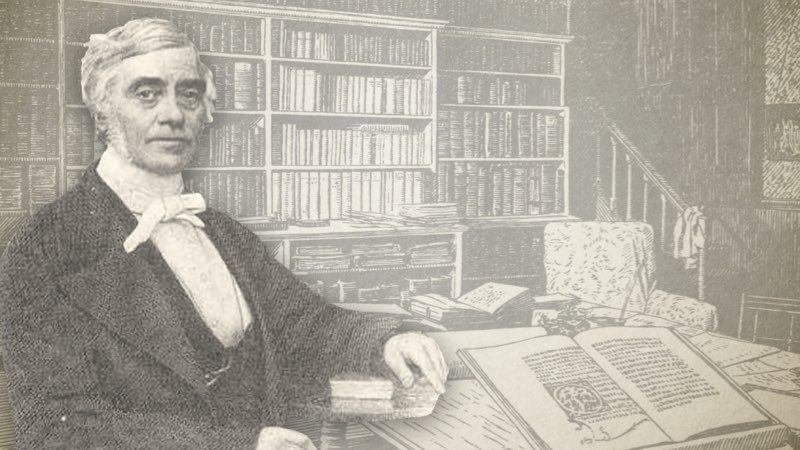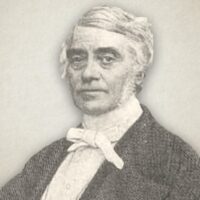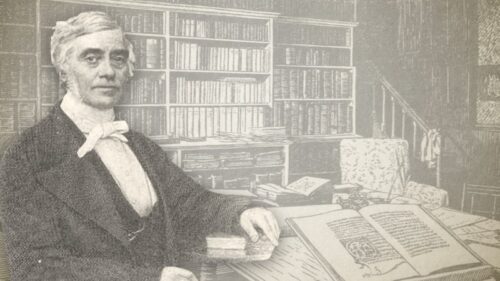
Usefulness In The Ministry
November 28, 1831
My dear Tiptaft,—When Brenton made me the offer of my coming to Stadham, it seemed to me, at first, the very opening I had been desiring and praying for. But since I have considered the subject more maturely, I have thought it best not to accept his offer. My desire is to do just what God pleases in the matter, and to be willing to go or stay just as He thinks best. At the same time, I find myself counting the weeks to next spring, and feel somewhat of what Laban said to Jacob, “You greatly longest after your father’s house.” But I think, all things considered, I am doing what is best in staying here. Though it has pleased God to restore me to much better health, yet it is not so far established as to enable me to face the fatigues and cold of the winter, and I could not think of turning Brenton out of his lodgings at this time of the year. Besides which, I trust I am not altogether without use here. If I did not think Brenton a child of God, and one who had the spiritual welfare of my people at heart, I would not stay away from them a day; but though he may not preach with power, or to much edification, I fully believe he declares the truth. I at times feel very anxious about them, and trust it may yet be the Lord’s will that I may return to them.
I am glad you are not likely to leave the neighborhood of Sutton, as I believe you have been made useful there. You should take care to have your chapel sufficiently large to hold a good number, as it is likely to be much crowded. This step of yours is not likely to meet with the approbation of the vicar of Abingdon, nor, indeed, of many of our friends in your neighborhood; but if the Lord gives you His blessing, you need not mind what is said or thought…
To make light of “experience” cannot be right, for all the power of religion consists in it, and I fully believe, what you have often said, that where there is no experience there is no religion. I am sure, for my own part, that the only time when the truths of Scripture influence my mind and practice, is when they are felt experimentally in the heart; and, I am quite sure, if I knew more of the mighty operation of the Spirit in my soul, I would walk much more happily, humbly, and consistently. I fully agree to all you say about the work of grace in the soul, and earnestly desire the gift of the Spirit, that I may feel more and more deeply the things of Christ. God has given us His Son; in addition to that, He has promised to give His Spirit, to take the things of Christ, and show them to us; and if the possession of the Spirit does not distinguish the believer from the unbeliever, I know not what does.
Though it may be a trial, it is perhaps best for you to have no friend with whom you may readily consult upon the matters that interest you, as it must throw you more immediately upon God to obtain wisdom and counsel from Him. There are many promises of this in the word of God, and I believe, where the eye is single, the path is not in many cases very difficult. Scripture speaks much of patience, and I suppose we must be still before we shall see the salvation of God. I observe in the Old Testament that the saints waited much and long for the fulfillment of God’s promises, and that, generally, help was delayed to the last extremity, and then afforded promptly and effectually. I was much struck the other day with Proverbs 16:9; I found it very applicable to my own case, as I was much perplexed about coming back to Stadham. My inclination is to go there, but I certainly, at present, do not see the way clear.
I often think of you and your great kindness to me last winter; indeed, I trust I shall never forget your unwearied attention to such an invalid as I was then. May the Lord richly reward you! I think I have, on the whole, enjoyed more of the power of the truth since I have been here, than I had done for some time previously; but I daily feel how much I have to learn. What I need is the gift of the Spirit; this is the promise of the Gospel, and without it all that Christ did, taught, and suffered, is nothing to us. I trust the Spirit has not left my people at Stadham. I am sometimes apprehensive of their becoming lukewarm and dead. But the Lord must keep those who are faithful to His promises, and can keep them without human means.
Yours affectionate Friend, J. C. P.
Joseph Philpot (1802-1869) was a Strict and Particular Baptist preacher. In 1838 he was appointed the Pastor of the Churches at Oakham and Stamford, during which time he became acquainted with the Gospel Standard. In 1849, he was appointed the Editor for the Gospel Standard Magazine, a position he held for twenty-nine years (nine years as joint Editor and twenty years as sole Editor). John Hazelton wrote of him—
“A man of great grace, profound learning, and with a literary style equal to any of his contemporaries. For twenty years he was editor of the "Gospel Standard," in which his New Year's Addresses, Meditations, Reviews, and Answers to Correspondents were outstanding features. His ten volumes of sermons, entitled "The Gospel Pulpit," and his four volumes of "Early Sermons," testify to his powers as an expositor of the Word, to the beauty of his illustrations, and the heart-searching character of his ministry. He was born at Ripple, Kent, where his father was rector, and educated at Merchant Taylor's and St. Paul's schools, entering at Oxford University in 1821, taking a first-class, and ultimately becoming Fellow of his College. He accepted an engagement in Ireland as a private tutor, but prior to his departure he was unexpectedly detained at Oakham. There he bought a book, "Hart's Hymns," and was much struck by the beauty of many of them. In 1827, in Ireland, eternal things were first laid upon his mind, and "I was made to know myself as a poor lost sinner, and a spirit of grace and supplication poured out upon my soul." He returned to Oxford in the autumn, and "the change in my character, life, and conduct was so marked that everyone took notice of it." Early in 1828 he was appointed to the perpetual curacy of Chislehampton, with Stadhampton—or Stadham—not far from Oxford. He soon gained the love and esteem of his parishioners. His Church was thronged, and his labours were unceasing amongst young and old. In 1829 he became acquainted with William Tiptaft (1803-1864), vicar of Sutton Courtney, and a friendship commenced which death alone severed. Both ministers had been led to know the truths of predestination and election and the final perseverance of the saints, and preached them with unflinching boldness. Persecution soon arose; it always does in some quarter when there is a faithful ministry. In 1831 Tiptaft built a chapel at Abingdon, where he remained as a Baptist pastor until his death. In 1835 Mr. Philpot resigned his living and his fellowship; the temporal sacrifice entailed was such that he had to sell almost all his books. Soon after this momentous step had been taken he preached in a chapel at Newbury, which some of his friends had procured for the purpose. He writes: "When I therefore began to open up that God had a chosen and peculiar people the whole place seemed in commotion. One man called aloud, 'This doctrine won't do for me!' and started out, and was instantly followed by five or six others. I was not, however, daunted by this, but went on to state the truth with such measure of boldness and faithfulness as was given me. Some of my friends at the chapel thought that the people would have molested me, but no one offered to injure me by word or action, and I came safe out from among them." He also writes: “——is, I fear, something like the robin spoken of in 'Pilgrim's Progress, who can eat sometimes grains of wheat and sometimes worms and spiders. I am quite sick of modern religion; it is such a mixture, such a medley, such a compromise. I find much, indeed, of this religion in my own heart, for it suits the flesh well; but I would not have it so, and grieve it should be so." He preached much at Allington, near Devizes, and in the Metropolis, and many other places. His ministry was attended by crowds, and was blest to saint and sinner. In 1838 he became Pastor of the Churches at Oakham and Stamford, residing in the latter town till failing health caused his removal to Croydon. At the time of his settlement at Stamford he became associated with the "Gospel Standard," and in 1849 he was appointed editor. He was a most interesting writer on the things of God. His sermons are experimental rather than doctrinal, but when he treated of doctrine it was in a comprehensive and scriptural way, as his "Meditations" amply prove. His book on "The Eternal Sonship" practically closed the controversy which gave it birth. His "Reviews" are most instructive and brilliantly written. Would that the younger members of our Churches made a study of them! "The Advance of Popery" was another work which had a wide circulation, and events today prove the accuracy of the forecasts so solemnly made therein. His "Letters" have been a means of grace to many, and it is refreshing through them to know the spiritual history of some of the excellent of the earth in their day and generation, and to have glimpses of services at Eden Street, Gower Street, and Great Alie Street Chapels, and at Came and other places, especially in Wiltshire.”
Joseph Philpot's Letters
Joseph Philpot's Sermons




